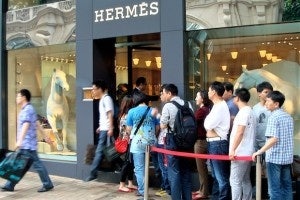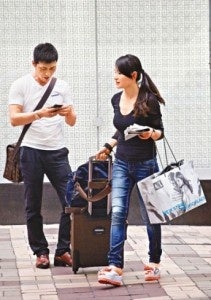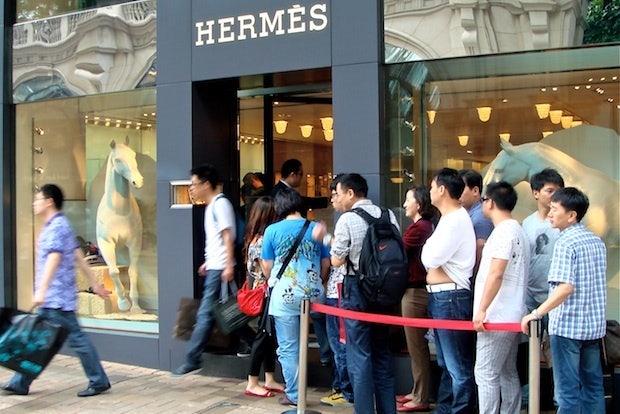Five Percent Year-Over-Year Golden Week Tourism Growth Expected#

In recent years, Hong Kong luxury retailers have come to rely on Golden Week (黄金周) -- which takes place twice officially per year in China and, unofficially, coincides with International Labor Day -- for an influx of cashed-up mainland Chinese tourist-shoppers. Attracted by lower prices, often better selection, and more inventory, the number of visitors heading to Hong Kong from the Chinese Mainland has skyrocketed, with 28.1 million crossing the border last year, a 24 percent rise over 2010. In February alone, 2.29 million Chinese tourists traveled to the former British colony, a rise of over 14 percent. With growing ease of travel due to programs like the Individual Visit Scheme, 66 percent of mainland Chinese arrivals were individuals, as opposed to members of tour groups.
However, advantages like easier travel are proving a double-edged sword for retailers long accustomed to bracing for the thrice-yearly Golden Week rush. According to China News (Chinese), the increasing popularity of the Individual Visit Scheme has made Hong Kong travel far more convenient, reducing mainland Chinese reliance on long holidays to visit the city. As the Hong Kong Travel Industry Council noted this week, average consumption per capita among mainland Chinese visitors has decreased somewhat in the past year to HK$7,000 (US$902) as the number of overall visits grows and consumers head to Hong Kong for not only luxury goods but food items and low-priced consumer goods. As "May Day" Golden Week (香港五一黄金周), no longer on equal footing to the National Day or Spring Festival holidays, actually only lasts around three days, the number of mainland visitors this week is expected to only rise around five percent year-on-year. As the Hong Kong government admitted recently, Hong Kong travel has become something of a "habit" among mainland Chinese, and as such their spending habits during Golden Week holidays are becoming far less pronounced than in previous years.

Along with the Individual Tourist Scheme, one reason mainland Chinese have increased the frequency of "short-haul" jaunts to Hong Kong is the rising costs of accommodation. As China Daily wrote last fall:
This year’s expected 10 percent increase in mainland visitors [during National Day Golden Week] is only half of last years’s 20 percent. And this slowdown is growth has been attributed mainly to the high cost of accommodation, while airfares have remained relatively stable.
Most hotels in Hong Kong have jacked up their room rates by 40 percent or more in anticipation of the national holiday rush, executive director of the Federation of Hong Kong Hotel Owners’ Association Li Hancheng said. The average daily rate for a standard room in a three-star hotel is 1000 yuan, compared with 300 yuan in Shanghai.
Of course, with tensions continuing to simmer between Hong Kong locals and mainland Chinese, the Hong Kong government is taking great pains this week to claim it's cracking down on complaints of Mainland mothers looking to give birth in the city. Last week, as the FT noted, the SAR government announced that private hospitals in the city will stop taking bookings from mainland Chinese mothers next year, and around Golden Week, city immigration authorities said they would beef up efforts to block pregnant mainland Chinese women from entering.
